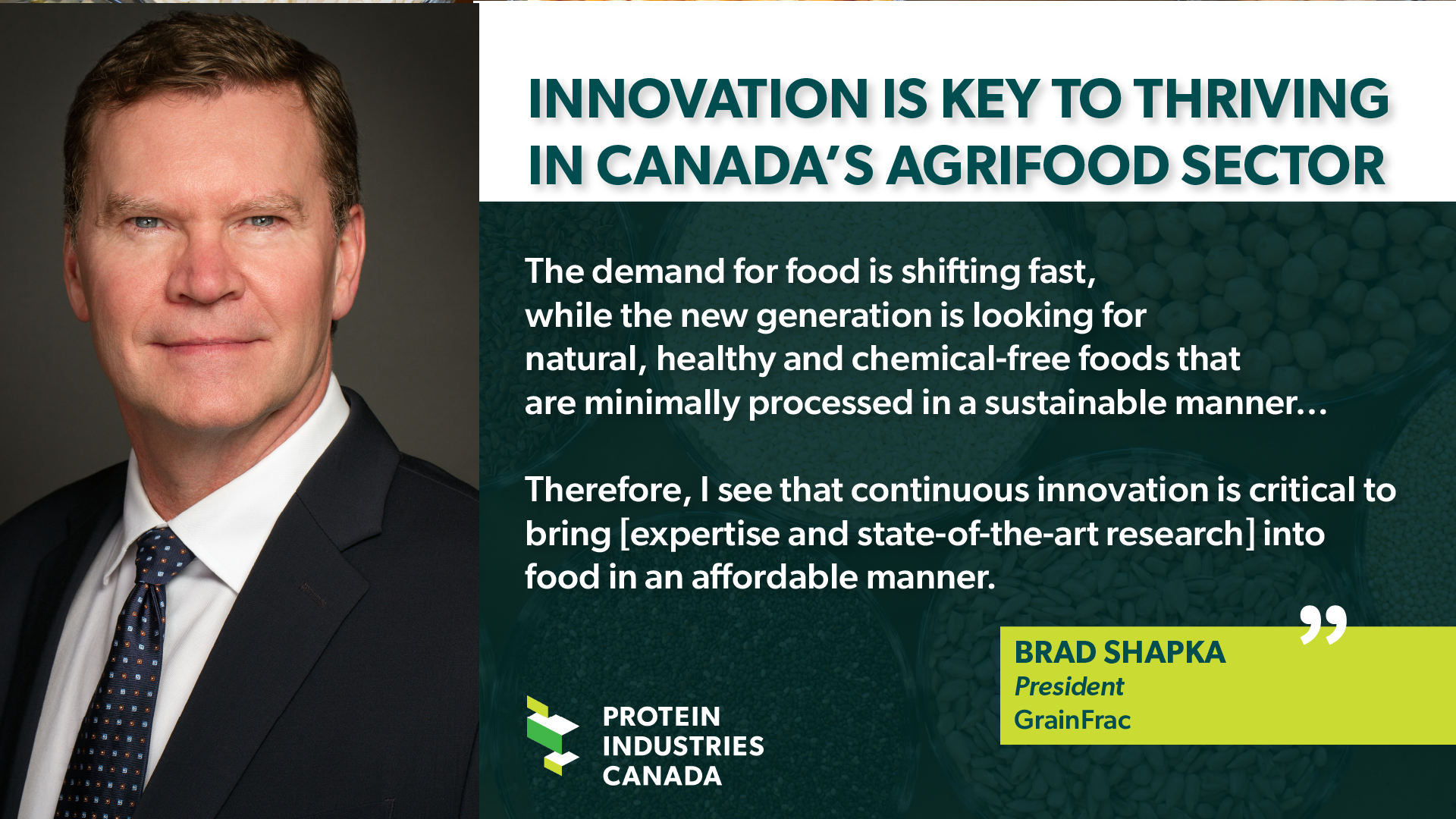Collaboration with university leads to stronger intellectual property strategy
- Posted:

Some of the best innovation in Canada’s plant-based food and ingredients sector is built off of collaboration. While this most often happens as partnerships between businesses, partnerships between businesses and academic institutions can be just as fruitful.
For the team at GrainFrac, a plant-protein ingredient processor, the benefits of working with the University of Alberta to utilize a piece of intellectual property in the development of a new processing method have been plentiful. GrainFrac began utilizing the technology in 2014, at the same time the business was established. The company worked to commercialize the technology, called ACAPS, over the following years, and eventually co-invested in a project with Protein Industries Canada, Ripple Foods and Tomtene Seed Farms in March 2021. Since then, the company has further refined its process, helping them process healthy, sustainable ingredients for Canadian consumers while reducing costs and energy inputs related to processing.
“This enables us to optimize the value of cereals produced here in western Canada by processing them into a functional ingredient that has numerous health claims associated with cholesterol reduction and diabetic control,” GrainFrac President Brad Shapka said. “And the use of our more sustainable technology for processing plant protein requires less water and energy, resulting in lower GHG emissions. Given the anticipated high global demand increase for plant protein, our more sustainable technology has the potential to make a positive contribution towards climate change.”
While utilizing university-developed intellectual property may not be the first strategy to come to mind for many organizations, Shapka cited it as an easy choice. He learned at an early age that innovation was an important part of thriving in Canada’s agrifood industry. He believes that one of the best ways to accomplish the type of innovation needed to provide the world with an increasing supply of healthy, sustainable protein is by partnering with all links in the value chain, including academic institutions.
“I do not see any better way other than working in collaboration with universities, where expertise and state-of-the-art research infrastructure are accessible in an affordable manner,” he said. “This industry is highly complex and dynamic in nature. The world population is growing towards 10 billion in 2050, and the demand for food is shifting fast, while the new generation is looking for natural, healthy and chemical-free foods that are minimally processed in a sustainable manner … Therefore, I see that continuous innovation is critical to bring the aforementioned attributes into food in an affordable manner.”
This drive toward innovation has carried over into GrainFrac’s partnerships with businesses, as well. Shapka said the company chose to work with Ripple Foods and Tomtene Seed Farms because they had business models and products that complemented GrainFrac’s, allowing them to more fully build out their farm-to-fork feedback loop.
Additionally, these partnerships have helped GrainFrac to perfect its processing methods and other intellectual property.
“Our IP strategy revolves around looking for new complementary processing facilities and infrastructure, expertise, and IP from other companies and strategic investors. To date, our collaborations have significantly enriched our IP stand,” Shapka said. “Our collaboration with Tomtene Seed Farms is an excellent example. Their close association with the University of Saskatchewan is helping us to identify and bring in suitable grains from novel varieties that leads to optimize our processing and marketing operations.”
By strategically partnering with businesses and academic institutions alike, GrainFrac is proving that collaboration along the full value chain can help businesses across Canada achieve their goals related to sustainability, product development and growth—while helping Canada meet the growing global demand for healthy, sustainable plant-based food and ingredients.
